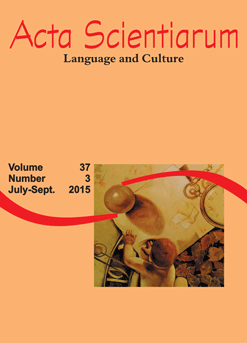<b>The Discursive Representation of Dictatorship in Lygia Bojunga’s <i>A casa da madrinha
Abstract
The children’s novel A casa da madrinha [The Godmother's House], by Lygia Bojunga (2002), published in 1978, incorporates libertarian ideals of the children’s and youth production of that decade. Its plot breaks with the tradition of euphoric literary production around the 1940s and 1950s, intended to children and young people, talks about taboo subjects like abandonment of minors and child labor, bringing to the center an inhuman social reality in which children and youths are neither protected nor supported or respected, having their rights disregarded. This justify, thus, the objective of this text, which is to analyze how these ideals are configured in the discursive representation of said work, considering that it was published during a military dictatorship.
Downloads
DECLARATION OF ORIGINALITY AND COPYRIGHTS
I Declare that current article is original and has not been submitted for publication, in part or in whole, to any other national or international journal.
The copyrights belong exclusively to the authors. Published content is licensed under Creative Commons Attribution 4.0 (CC BY 4.0) guidelines, which allows sharing (copy and distribution of the material in any medium or format) and adaptation (remix, transform, and build upon the material) for any purpose, even commercially, under the terms of attribution.
Read this link for further information on how to use CC BY 4.0 properly.




















6.png)









